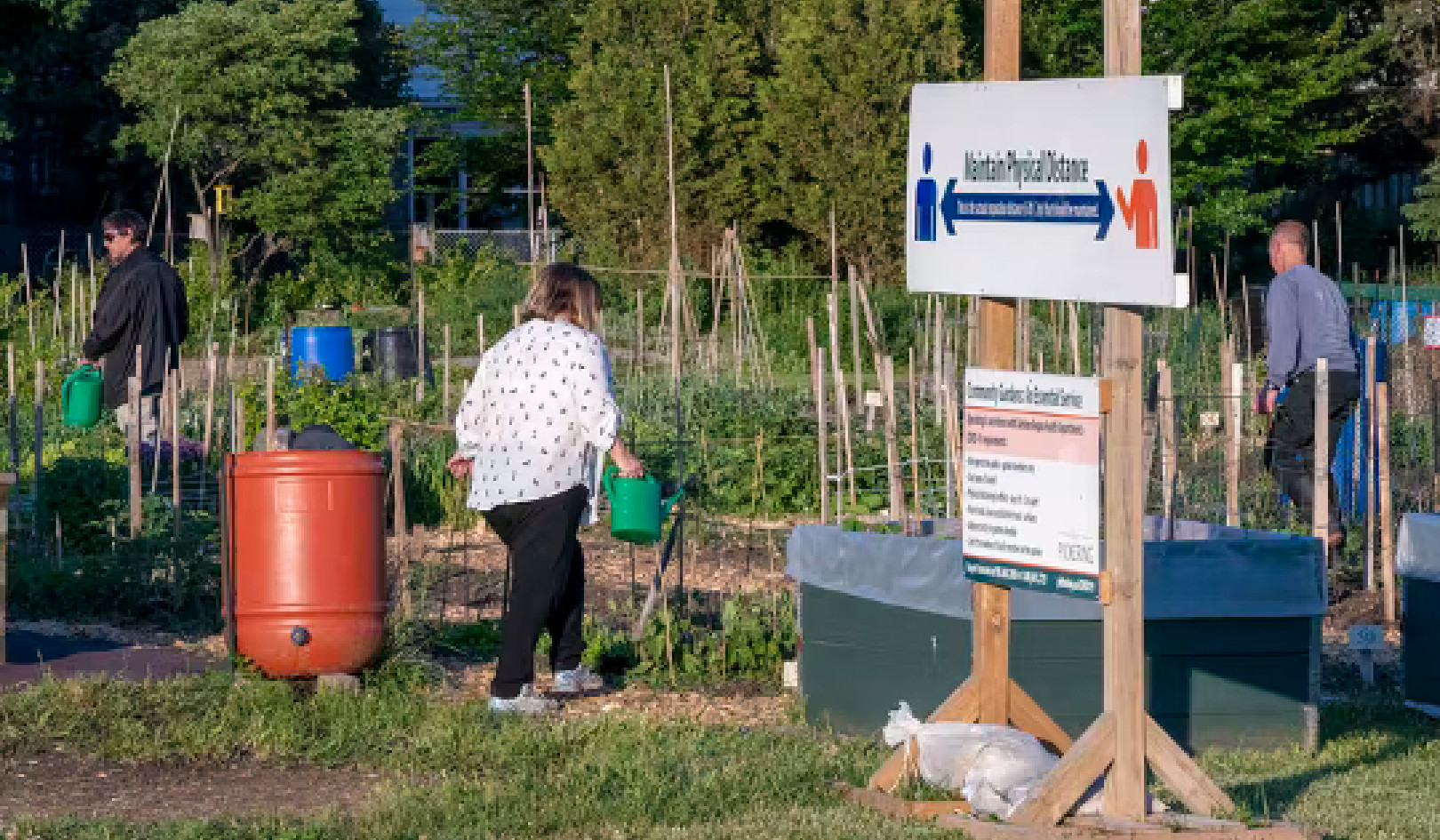
The saying "you are what you eat" has a deeper meaning when considering how our daily habits affect our overall health and how long we live. The foods we choose, how much we move our bodies, and what toxins we're exposed to determine our physical and mental wellbeing.
Chowing Down on Chronic Diseases
Consider how dramatically the typical American diet has changed over the past 50 years. We're eating way more processed, pre-packaged foods with lots of sugar, bad fats, and unnecessary additives. And this unhealthy eating pattern hasn't just stayed in America. Thanks to the spread of American dietary habits, chronic disease has also gone global. Is it a surprise that as our diets got unhealthier, rates of obesity, diabetes, heart disease, and many cancers started climbing, too? These gut-busting, nutrient-poor ultra-proceed foods are putting our long-term health at risk.
But the consequences go beyond just our bodies packing on unhealthy weight and chronic disease. What we put in our mouths could also be messing with our minds and leaving our brains vulnerable to diseases like dementia down the road. To keep our bodies and cognitive skills firing on all cylinders for years, we must clean up our eating habits.
Move It or Lose It
Speaking of using our noggins, the old saying "use it or lose it" doesn't just apply to our bodies—our brains need exercise, too. Physical activity is a no-brainer for staying fit and managing conditions like depression and anxiety through mood-boosting brain chemicals.
But in our modern, sedentary lives, filled with tasks that keep us glued to screens and couches for hours, it's a struggle to get enough daily movement. Mental activities that keep our minds agile and engaged, like reading, puzzles, or learning new skills, can help stave off cognitive decline as we age, just like physical exercise keeps our bodies spry.
We need regular sweat sessions and brain-flexing activities to stay sharp and healthy in body and mind throughout our lives. That will require creative solutions in our increasingly inactive work and leisure culture.
The Toxic World Around Us
Even if we follow the right diet and activity levels, we still swim in an ocean of harmful environmental exposures that can jeopardize our wellbeing. Air pollution, chemicals in household products, pesticides, and newly emerged threats like microplastics are just some toxins we can't seem to avoid in our modern world.
It's a tricky balance - these hazards are everywhere in the air, water, food, and consumer products woven into our daily routines. Insidious pollutants like PFAS don't break down quickly. They can accumulate in our bodies over time, potentially causing all sorts of issues, from developmental problems to cancer.
We need multi-pronged public health strategies to minimize our exposures through product regulations, pollution controls, and safer alternatives. However, staying vigilant about limiting contact with these ubiquitous toxins must be part of every individual's health plan.
A Potential Reversal in Life Expectancy?
With unhealthy eating habits, sedentary lifestyles, and toxic exposures becoming so prevalent, it's setting off alarm bells that we may start seeing declines in life expectancy for the first time in decades. Some populations are already showing signs of stagnation or reversal in longevity trends.
If that trajectory continues, it could mean erasing over a century's hard-fought public health and life expectancy gains. We could be facing a future where people not only live shorter lives but ones diminished by chronic illnesses, disabilities, and lack of vitality in those final years.
Don't Wait Until It's Too Late
One of the biggest mistakes people make regarding their long-term health is procrastinating—putting off positive lifestyle changes until tomorrow, next week, or next year. Age has a funny way of sneaking up on you faster than you'd think.
In the blink of an eye, those young adult years of infinite tomorrows give way to middle-aged and senior years that arrive almost overnight in hindsight. Suddenly, you look back and realize decades have flown by while you kept kicking the can down the road on creating sustainable healthy habits.
That's why it's so critical to prioritize your well-being sooner rather than later. Don't make the mistake of thinking you have forever before unhealthy patterns like poor diet, inactivity, and toxin exposures catch up with you. Those behaviors don't just turn on you overnight once you're older—they've been chipping away at your long-term health bit by bit over time.
The human body is incredibly resilient, but it's not indestructible or impervious to the cumulative impact of lifestyle choices made year after year. The sooner you commit to a healthier lifestyle, the easier it will be to course-correct any damage already done and maximize the preventative benefits.
Healthy habits in your 20s or 30s instead of waiting until your 40s or 50s could add extra years of vitality to your lifespan. So don't discount the importance of preventative actions because you're still young and in your prime. Those primers you put in place today will pay off massively.
Transitioning to wholesome eating, regular exercise, limiting toxic exposures, and prioritizing self-care gets more complicated the longer you put it off. Take it from those who let too many years slip by – the head start you have right now is a gift. Don't let it go to waste.
A Holistic Gameplan for Healthy Living
The writing's on the wall - if we want to live longer, healthier lives, diet, exercise, and reducing toxic exposures need to be top priorities. It's no longer enough to aim for a high number on the lifespan odometer; the quality of those years matters.
Personal lifestyle tweaks like cleaning up our diets, getting more physical activity, and limiting contact with toxins must be combined with policy-level public health campaigns addressing these issues. By taking a comprehensive approach, we can curb chronic disease rates that cut lives short and drastically diminish the vitality of our senior years.
Making this holistic lifestyle shift will benefit individuals. It could help curb skyrocketing healthcare costs associated with rapidly aging, sicker populations. Setting up supportive environments that make healthy choices easy can pave the way for future generations to live longer and more nutritious.
When you break it all down, the small daily decisions we make about what we eat, how we move, and what we expose ourselves to have massive impacts down the line. We must start treating our long-term wellbeing with the same care and importance we give to other essential areas of our lives. It's the ultimate investment that could pay dividends in more years but higher-quality years filled with vitality.
About the Author
 Robert Jennings is co-publisher of InnerSelf.com with his wife Marie T Russell. He attended the University of Florida, Southern Technical Institute, and the University of Central Florida with studies in real estate, urban development, finance, architectural engineering, and elementary education. He was a member of the US Marine Corps and The US Army having commanded a field artillery battery in Germany. He worked in real estate finance, construction and development for 25 years before starting InnerSelf.com in 1996.
Robert Jennings is co-publisher of InnerSelf.com with his wife Marie T Russell. He attended the University of Florida, Southern Technical Institute, and the University of Central Florida with studies in real estate, urban development, finance, architectural engineering, and elementary education. He was a member of the US Marine Corps and The US Army having commanded a field artillery battery in Germany. He worked in real estate finance, construction and development for 25 years before starting InnerSelf.com in 1996.
InnerSelf is dedicated to sharing information that allows people to make educated and insightful choices in their personal life, for the good of the commons, and for the well-being of the planet. InnerSelf Magazine is in its 30+year of publication in either print (1984-1995) or online as InnerSelf.com. Please support our work.
Creative Commons 4.0
This article is licensed under a Creative Commons Attribution-Share Alike 4.0 License. Attribute the author Robert Jennings, InnerSelf.com. Link back to the article This article originally appeared on InnerSelf.com
Related Books:
The Body Keeps the Score: Brain Mind and Body in the Healing of Trauma
by Bessel van der Kolk
This book explores the connections between trauma and physical and mental health, offering insights and strategies for healing and recovery.
Click for more info or to order
Breath: The New Science of a Lost Art
by James Nestor
This book explores the science and practice of breathing, offering insights and techniques for improving physical and mental health.
Click for more info or to order
The Plant Paradox: The Hidden Dangers in "Healthy" Foods That Cause Disease and Weight Gain
by Steven R. Gundry
This book explores the links between diet, health, and disease, offering insights and strategies for improving overall health and wellness.
Click for more info or to order
The Immunity Code: The New Paradigm for Real Health and Radical Anti-Aging
by Joel Greene
This book offers a new perspective on health and immunity, drawing on principles of epigenetics and offering insights and strategies for optimizing health and aging.
Click for more info or to order
The Complete Guide to Fasting: Heal Your Body Through Intermittent, Alternate-Day, and Extended Fasting
by Dr. Jason Fung and Jimmy Moore
This book explores the science and practice of fasting offering insights and strategies for improving overall health and wellness.




























